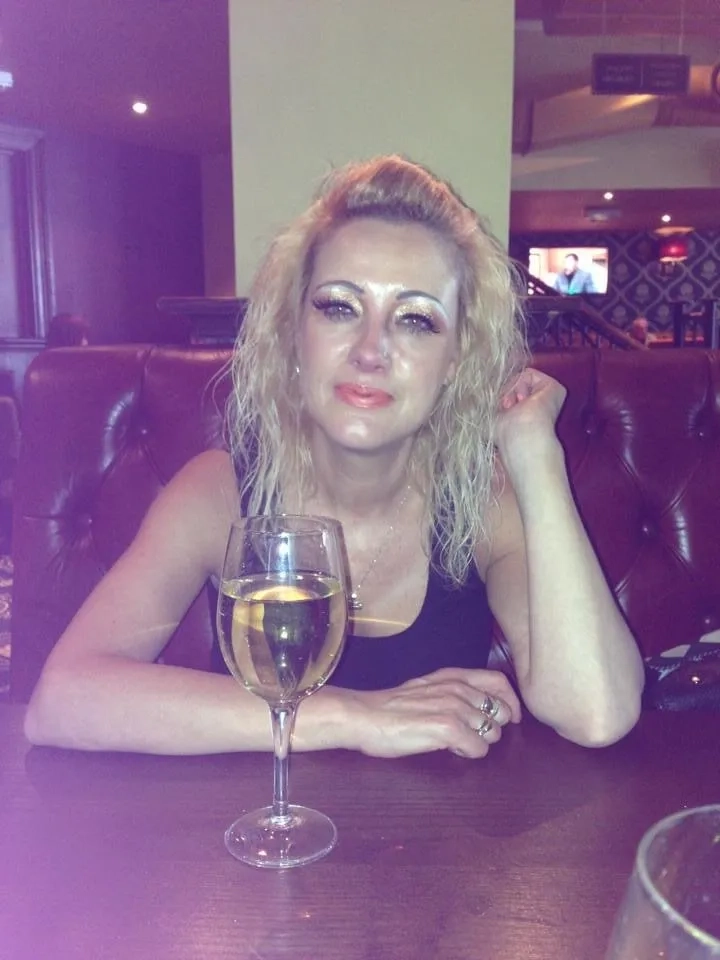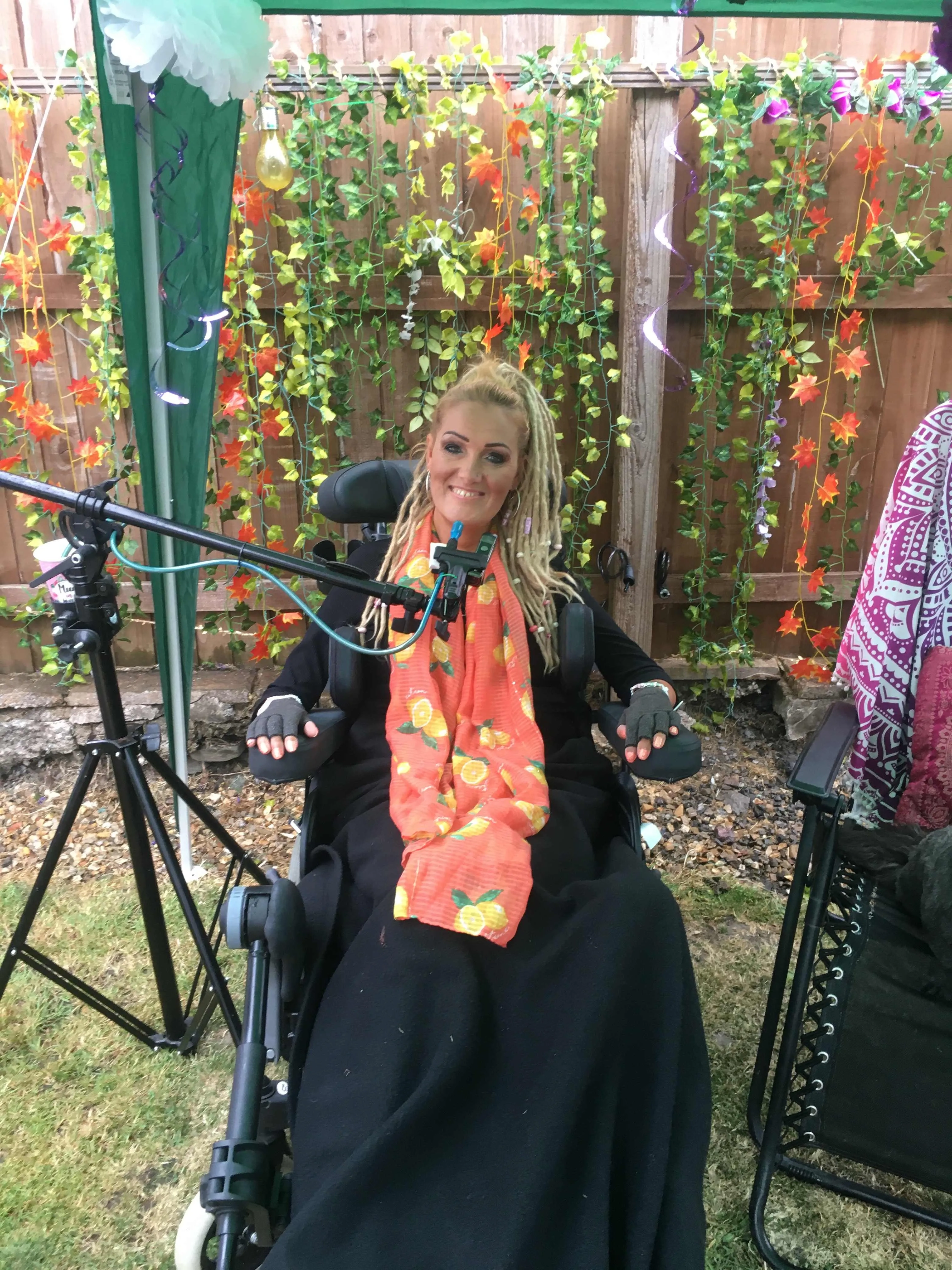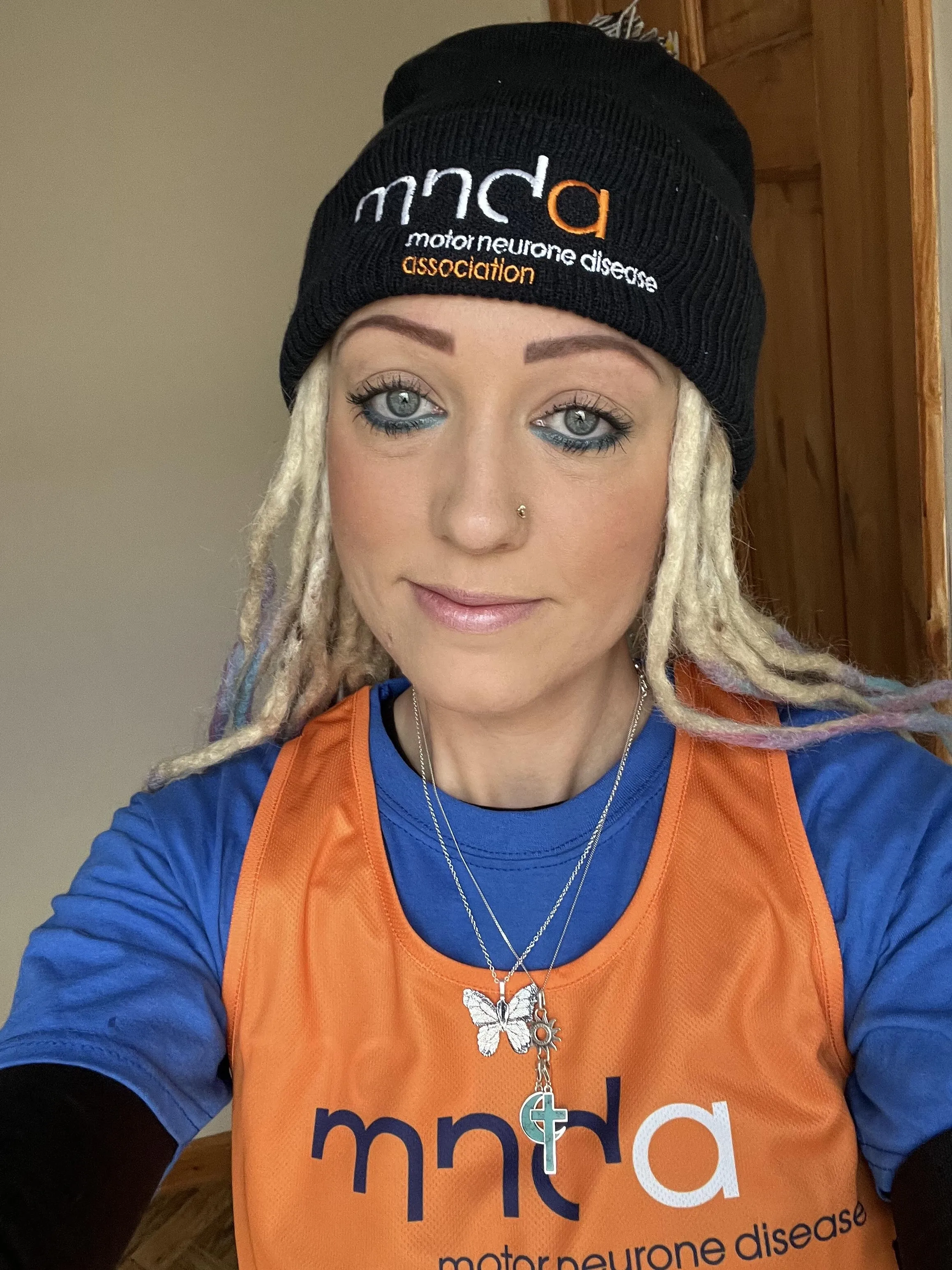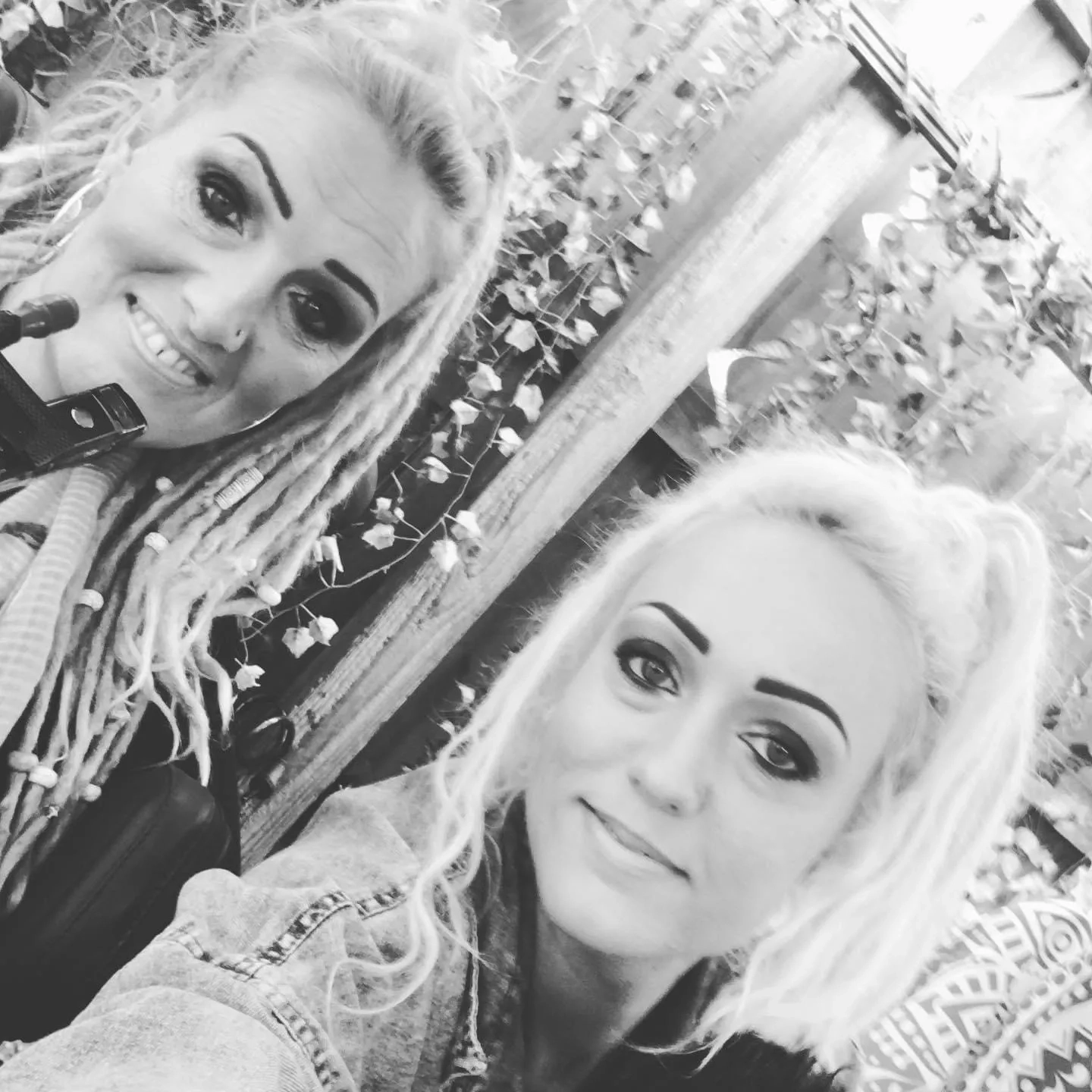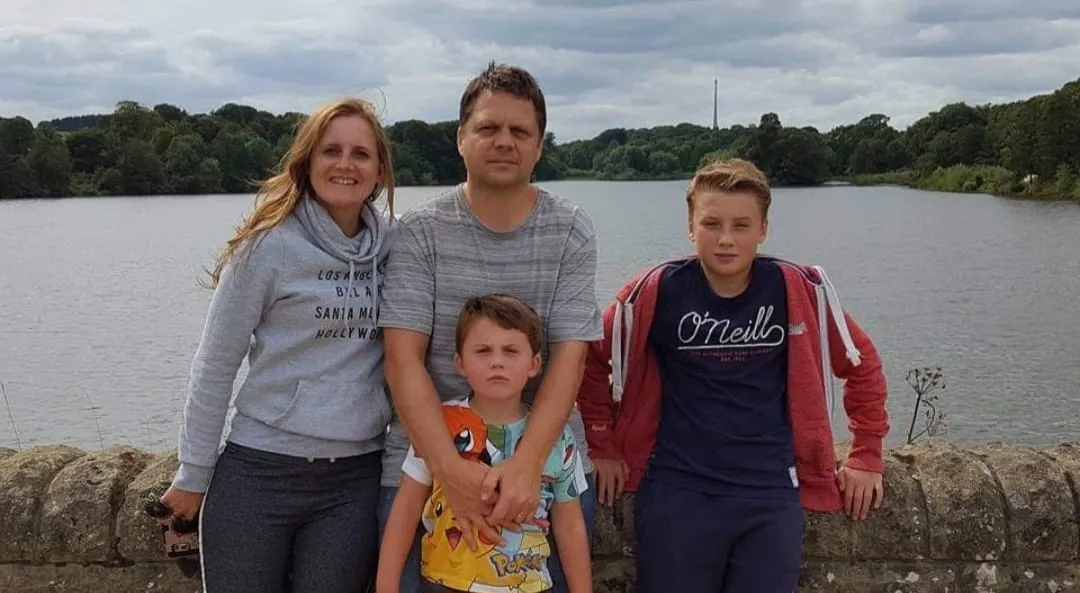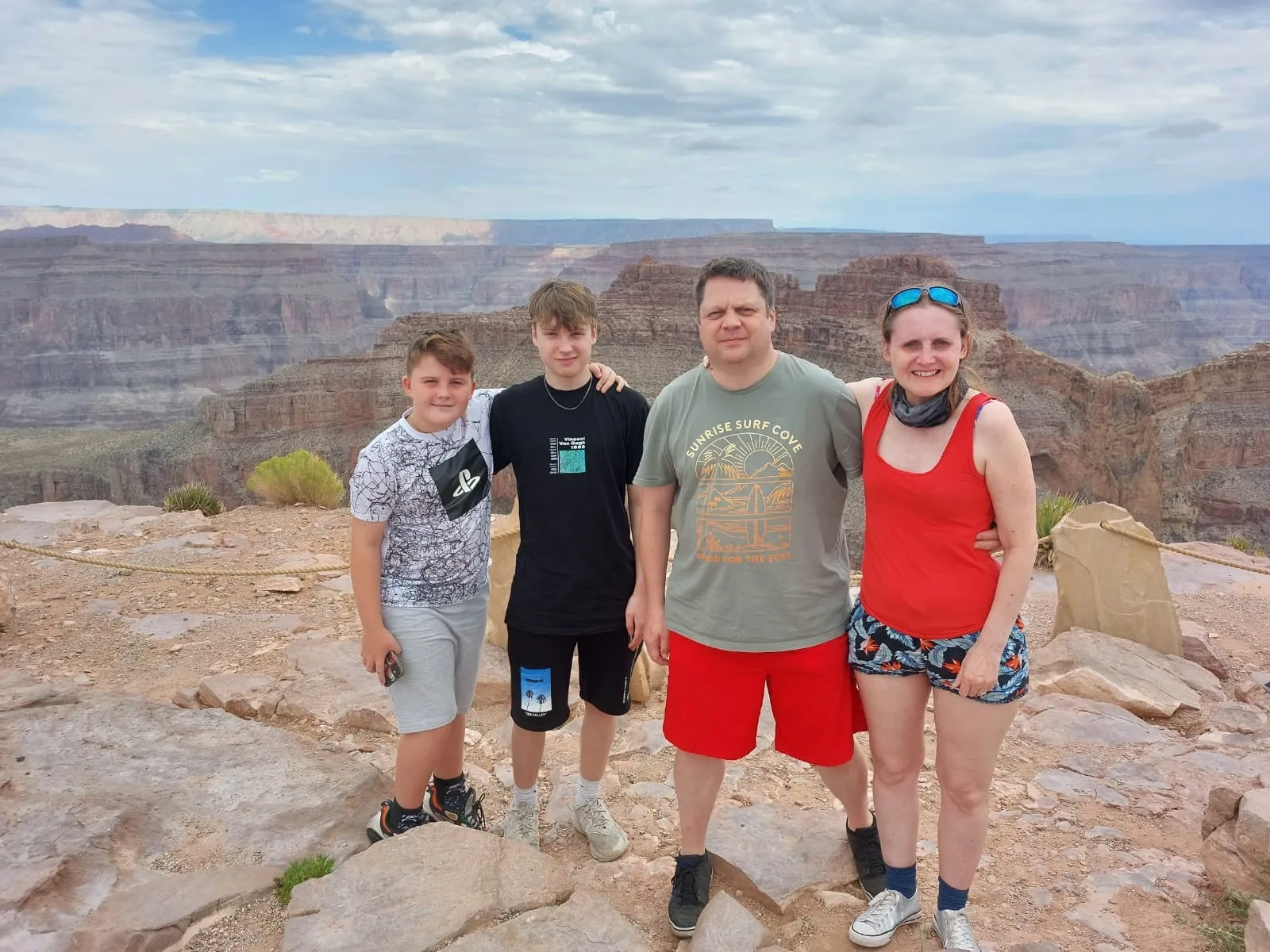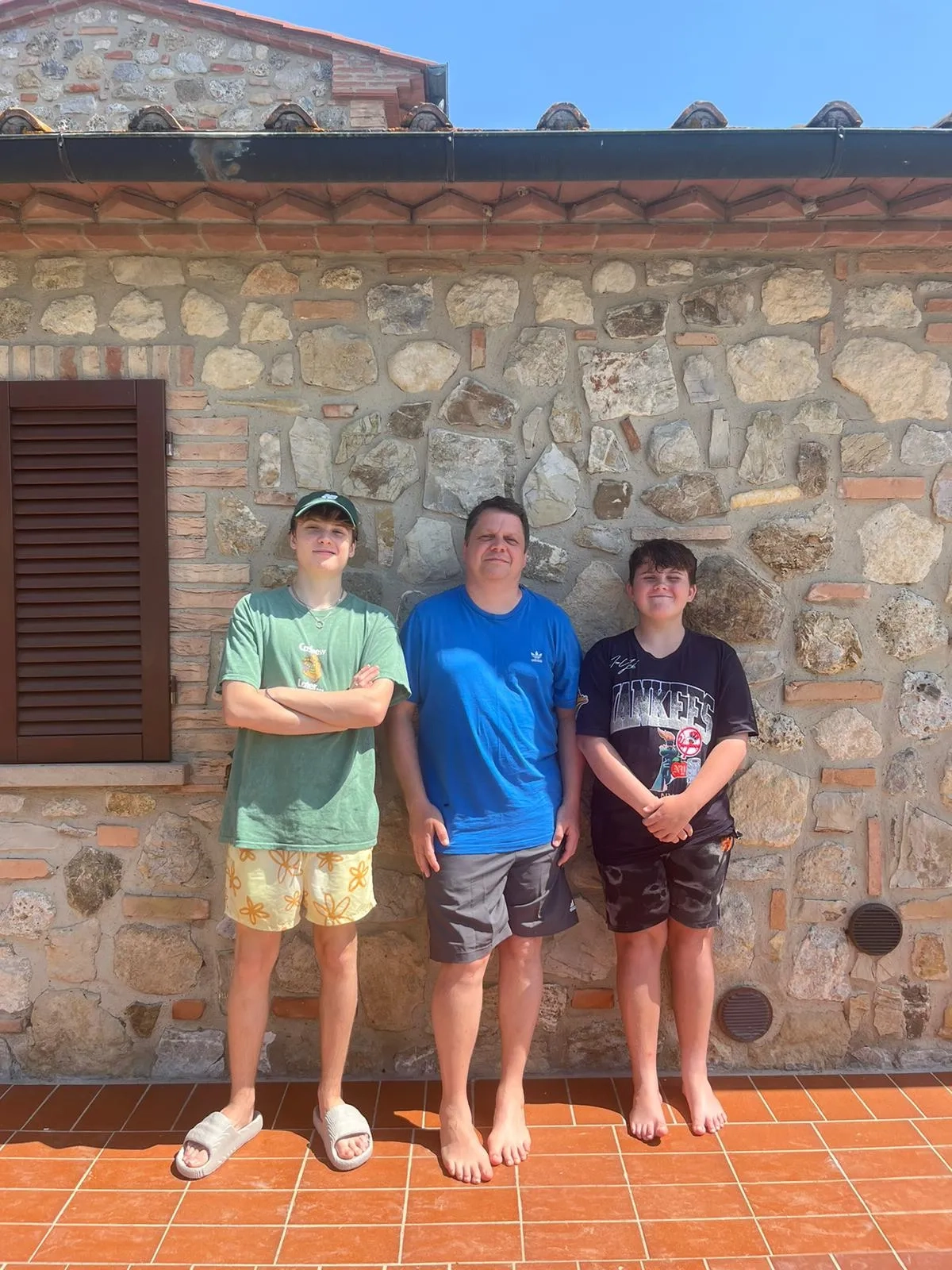10 - 16 June 2024 - Putting carers on the map
Carers Week is an annual campaign to raise awareness of caring, highlight the challenges unpaid carers face and recognise the contribution they make to families and communities throughout the UK. It also helps people who don't think of themselves as having caring responsibilities to identify as carers and access much-needed support.
The theme this year is 'Putting Carers on the Map' highlighting the valuable contribution carers make across the UK and ensuring their voices are heard loud and clear. By raising awareness, we hope politicians will better recognise the challenges unpaid carers face and help them access the support they deserve. You can also check out our MND Guarantee campaign to find out more about the key topics we're asking MP's to champion in the next Parliament.
This year, we're inviting you to read the heartfelt stories of MND carers, Rosie and Gareth, in their own words. By sharing their experiences, we can raise awareness and better understand the essential support available for MND carers, as well as the support they need and deserve.
At just 23, Rosie from Gwent, Wales, became a full time carer to her mum Alyson after her MND diagnosis. For nine years, Rosie dedicated her life to looking after her mum. Here, Rosie shares her MND story.
Rosie's story
Life before MND
"I was with my best friend, and I was in the comfort of my own home, and I wouldn’t have wanted it any other way."
Mam was a very independent, hard-working woman. She was always multitasking and calm under pressure, always smiling and positive and there for anybody who needed her. She was really loyal, loving, supportive and selfless - always putting others before herself. Mam loved trance music and dancing and she got me into it and taught me how to dance when I had no confidence. Mam loved camping and being outdoors and we used to go running in the mornings together. She adored her family and she spent most of her adult life raising me and my brother, Ryan. Before my mam had MND I was in university. Once I finished uni, I had my first proper job, which I was very unhappy in. This coincided with when Mam started to get ill and needed me to support her, so it seemed logical to give up work and focus on Mam. I lived at home even whilst at uni, I wanted to be at home with Mam, we were so close, she was my best friend, and we did a lot together. I did go out and went on a holidays and things like that, but I liked to be at home with my mam most of the time. Whilst looking after Mam, lots of people said to me, "I don't know how you did it for nine years" but for me, it wasn't a big deal. I was with my best friend, and I was in the comfort of my own home, and I wouldn’t have wanted it any other way. I didn’t see it as a sacrifice, it was a blessing to be able to spend that time with her.
Early Symptoms
"I realised things were serious when she was offered MRI scans and a lumbar puncture."
Mam's hands were affected first. They'd be freezing to the touch, so she wore arthritis gloves for years, all year around. Then Mam gradually started to lose her grip and her ability to write and slowly she started to find it more difficult to use her legs. This is when Mam worked out her diagnosis but kept it private at first. We then changed doctors and Mam started having tests done and I realised things were serious when she was offered MRI scans and a lumbar puncture. A few years before, she was worried about my bampi (grandfather) and suspected he had MND. Fortunately, he didn't have MND, but it was mad that she thought he had MND, and she was the one who ended up having it. Perhaps that’s why she was able to work out her diagnosis so quickly. Before Mam was diagnosed, she was turned away from entering the pub because the bouncers thought she was drunk, because of her walking. But she'd actually barely drunk anything because she was so scared of being drunk knowing that there was a problem and she had a fear of falling, so she was really careful. That was the last time that me and my mam ever went out because she was mortified at being refused entry. We watched the Coronation Street storyline together and I thought it was really good what they did with Paul when they said he was drunk because it's so true, people make judgemental assumptions and its literally what happened to my mam. That was hard to watch.
Diagnosis
"I'll never forget the look on the doctors face when he had to tell her the news."
I'll never forget the look on the doctor's face when he had to tell her the news. It must be awful for them to give that diagnosis and there's absolutely nothing they can say to make anything better. It just floors you. You feel numb for a while. To be honest, I think I'm only now accepting her MND. I just didn't think she was ever going to go.
I did my best, and for the most part it was just me and her at home, but there's only so much you can do for somebody when they've got such a life limiting disease. We lived on movies and series - there's hardly anything we haven't seen. We have two Shih Tzus and a cat which were amazing company, they loved Mam to bits. They wanted to be on her lap all of the time. If Mam needed me, she'd make a noise and the dogs would bark and alert me. If she was stressed out, one dog would bark, and the other one would go up and kiss her to make sure she was okay. They were absolutely amazing and adored her.
Adapting to MND
"We cried a lot. I'd feel helpless because there was nothing I could do, and she would feel frustrated."
There's lots of little things that we take for granted that don’t really get mentioned. It's simple things that we encounter every day that are a massive deal to someone who has MND. For example, having an eyelash stuck in your eye, you're stuck like that until somebody can get it out. Having a cramp or an itch you can't get to. Your glasses falling down your nose, you can't get them back up. The TV goes on standby, and you can't put it back on. You're hot or cold, you can't do anything about it. Even when these things would happen, imagine the difficulty of spelling out the alphabet trying to tell someone the issue.
You've got so many pressures; you're struggling to get by day to day. I think a lots of things have been harder than they should have been. We cried a lot. I'd feel helpless because there was nothing I could do, and she would feel frustrated. One time in particular, I was really overwhelmed, exhausted and pushed to my limit because Mam was getting really bad. She asked me if she'd done something wrong - she must have seen the stress on my face – and I felt so awful. I just cried and I said, "of course not, I just feel like I'm failing you and I feel like maybe somebody else needs to step in because I just don’t know what I can do for you anymore." It had absolutely got to the point where there was nothing I could do, nothing seemed to be making it easier. I just felt useless. She cried back at me and reassured me that I was helping her, she didn’t need anybody else, and she understood how hard it was. That cleared the air for us as well, I think there were a lot of emotions built up. I knew she was grateful but having her reassure me I was doing a good job, and she was happy with me being at home with her, it felt like a weight off. When you’re a carer, it’s a strange bubble you end up in when you can't participate in the real world. You start to get detached. You can get really wrapped up in your own head and you almost forget what it's like to be part of society. It’s really hard to find that balance. I’ve always struggled with my mental health, but it took a big hit over the years which was another battle Mam faced as she tried her very best to help me. She was amazing. She was always really supportive and encouraging.
Advice for Carers
"You can make your life easier; you’ve just got to be more forthcoming."
After I lost Mam, I participated in an organised fundraiser with the MND Association and engaged with many amazing people. The support I received was outstanding and it really helped me through some of my darkest days. The Facebook page was the first time I felt like I was surrounded by like-minded people who understood me and were experiencing the same emotions. I gained a lot of strength and reassurance from it and wished I had engaged in something similar sooner. I would definitely recommend people utilise any social support platforms accessible to them.
Trust your gut and do what you feel is right. Don't be afraid to ask because every little thing matters. Utilise all the people and specialists around. It's just too difficult otherwise. Use your hospice to liaise with your doctors, we all know how hard it is to get through to them these days. That’s one less thing for you to worry about and it frees up your time to spend with your loved ones. You can make your life easier; you’ve just got to be more forthcoming.
If there's something that you need done, don’t take a backseat. Do everything you can in advance, rather than avoiding what's going to happen. I would definitely recommend face to face or online support groups.
When Gareth's wife, Sarah, was diagnosed with MND just one year after her frontal temporal dementia diagnosis, their world was crushed. After hours and hours of research, forward planning, and a number of difficult conversations with their two sons Lewis and Euan, Gareth made the decision to take leave from work to care for his wife Sarah full time. Read more about Gareth's experience as an MND carer.
Gareth's story
Life before MND
"There were more signs coming through."
Sarah and I have been together for 20 years. We're both 50 and we've got a 13-year-old, Euan, and a 22-year-old, Lewis. I work in fraud, and Sarah had a number of jobs before taking early retirement. I'm dealing with a stressful job, a partner who's ill, and supporting two kids.
During COVID, we were working from home, so I could see some of the early signs. I had started a new job and Sarah was quite happy, but I could see she was struggling with things that are quite basic like drafting a fairly simple email. In that four-or-five-month period, I got quite a big promotion at work, so we made the call for Sarah to stop working and do something less stressful and she began volunteering at a local hospice shop, but there were more signs coming through.
We live in Sheffield, and we went up north to see my family. When we got to the car to drive back to my mum's house, Sarah said she would drive. She hadn't put the full beams on, and I was trying to show her how to do it while she was driving, but she couldn't understand. There were more instances, so I wrote a letter to the GP and listed all of the incidents over the last couple of years. When we saw her she said it could be one of four things and dementia was one of them.
Diagnosis
"You've got to know how to fight the system."
The investigation started in the second half of 2021, they did a CRT scan, and an MRI scan, and we didn't get diagnosed with dementia until a year later in October 2022. It’s quite a rare one, frontal temporal dementia (FTD). Your social impulses and skills are lacking, but your memory is still fine, at least in the initial stages.
We got the motor neurone disease (MND) diagnosis in December 2023. The problems with her speech were getting worse throughout 2023 and we had a regular six-month appointment with the consultant who saw her arms were a bit weak as well. With frontal temporal dementia, you have an average of six years from diagnosis to death. Having both conditions at the same time, it's around two and a half years and by the point of the MND diagnosis it had already been over a year since the initial diagnosis of FTD.
It's hard to diagnose, and without that diagnosis its hard to get the care and support needed, so you've got to know how to fight the system.
When we got the MND diagnosis, I needed to sit down and tell the children. I've always been open and honest about Sarah’s illness, and told them both that any feeling is valid, whether they’re angry or fearful, sad or weary, there will be lots of emotions at different times, and none of them are wrong. The only thing that’s not good is to bottle them up inside because that's the worst thing you can do. Don't be afraid to talk about anything.
Adapting to MND and FTD
"What I need is some hours away from my care responsibilities. There's no right or wrong. You do what's best for you."
I've been doing 1000’s of hours of research into it to know how to handle it, and with some of the latest research, the suggestion is that frontal temporal dementia and MND is like a spectrum. They're not distinct diseases. 15% of people have got both. We’ve started having problems with speech, but that could be related to dementia, or to motor neurone disease, it’s hard to say. Towards the end of 2022 you could recognise 75% of what Sarah said, less than six months later, you could recognise 25% of what she said. Now, we can't recognise anything. She can occasionally say 'yes' or 'no', but this is the problem when you have both because if she just had MND, her speech might be affected, but cognitively she’s still there, and so she could still answer questions. Whereas, quite often, I’ll ask her a question and she won't answer. She doesn’t know what the question is basically. Even six months ago, if we were sat with the consultant, and he'd mentioned dementia she would panic, but now, you can have a really deep, in-depth conversation with the consultant, and she’ll sit there because she doesn’t really know what’s being said and doesn’t know it’s about her.
I think the best way I can get help is for someone to take Sarah out and give me a break. Give me half an hour and I can sort the dishwasher, put a wash on and I can quickly tidy up. What I need is some hours away from my care responsibilities. There's no right or wrong. You do what's best for you.
Power of Attorney
"You can clearly see they're not sure what to do, so I'm left with making that choice."
I've got power of attorney for Sarah for both her finances and her health. I feel like it's an honour to be trusted to make that choice and I want to do the job, even though it’s hard to make those difficult choices. Thinking solely of what Sarah would want, I’m coming from a place of love and thinking about Sarah's wishes not mine or anyone else’s.
You speak to the consultant, and you can clearly see they're not sure what to do, so I'm left with making that choice based upon the best advice they can give me. I have to be very, very careful when thinking about these things to detach any of my feelings and emotion from it. It’s about what Sarah wants. Forget about anybody else, what would Sarah actually want in that situation?
Caring for MND
"I was running on empty."
You have to learn to switch off. It’s hard to be a carer 24 hours a day, but from Sarah's perspective, it's better to be at home because she feels she’s still got her independence. You've got to concentrate on the things that are important. We've got three carers, luckily, because the financial assessment by the council had to be done on Sarah's income alone, so she was below the threshold, and we've got fully funded care. I'm in a well-paid job, but I still wouldn't have been able afford the level of care provided, so I get upset thinking about others that haven’t been given that support.
We managed to get care in place in June 2023. We were supposed to get 15 hours from November 2022, but I didn't want to use the council's carer because Sarah’s has dementia, so I wanted someone Sarah sees as a friend, meaning we needed someone regular, not a different person every time. I truly believe that if it had taken a couple more months to get the carers in place, I’d have had to put her in nursing home as I just couldn't have coped any longer. I was running on empty.
I’ll always make sure I have a carer there when Sarah’s eating. She does feed herself but it's more just making sure she's having one mouthful at a time, having a drink and taking a break, little things like that. We’ve got a dog, so me and Sarah will walk the dog for half an hour, we find that’s enough for her. I've got a lot of willpower and stamina, but it’s like Groundhog Day a lot of the time.
Pressures of MND
"I can't relax even when Sarah’s not here."
You realise how much you've gradually taken on in the role of a carer and you think we can scrape through, we can manage. But it's so hard to spend any time for yourself; I have put on over 2 stone just through not being able to go out and exercise. I'm not working, I've got 40 hours of care, why am I still tired? And then you realise, you can't relax at any point. I don't know if I'm going to get a phone call from the hospice suddenly, I worry when I have a bath in case something happens, I can't relax even when Sarah’s not here.
There’s a lot of pressures, and it’s not even the care necessarily because I feel like I’ve got that in a good place. But I’ve got to keep everyone happy; the family, the professionals, the boys, and Sarah so that I don’t feel I am letting anyone down. I’ve got to make sure the specialists are putting in place what was promised. It’s just juggling so many different things, not just care.
It's really, really tough, but it can be equally rewarding, and I'm absolutely determined to give Sarah the best chance she has, and also give the kids the best life possible.
Association support
The MND Association has branches and groups across England, Wales and Northern Ireland that can provide local support. Our Association visitors provide people living with and affected by MND with emotional support, information and signposting to further help. Our carer's and young carer's grants are provided to enable main unpaid carers to take a break from their caring duties however suits them, from pamper days to pursuing a hobby.
MND Matters: the MND Association podcast
With this years' parliamentary drop-in cancelled due to the upcoming General Election, we've dedicated our June MND Matters podcast episode to catch up with MND caregivers about their experience.
You can dive into this episode as well as revisit previous episodes by visiting the MND Matters page on our website.

